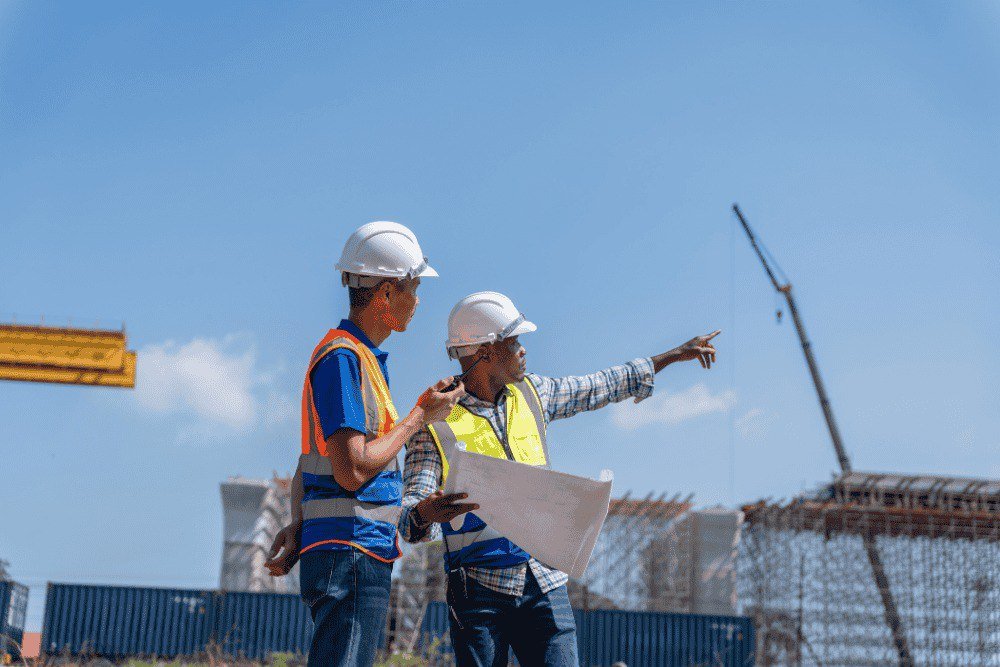Construction Project Planning | Key Steps and Tips
When embarking on any construction project, having a well-structured plan is crucial. Proper construction project planning is what sets the stage for a smooth workflow, ensuring the project is completed on time, within budget, and to the highest standards. Whether it’s a residential or commercial build, this process plays a pivotal role in the overall success of the project. In this post, we’ll dive into the key steps of construction project planning, offering valuable insights to help you manage your next project efficiently.
What is Construction Project Planning?
Construction project planning refers to the detailed process of organizing and managing every aspect of a construction project. It includes scheduling, budgeting, allocating resources, and risk management. Proper planning addresses potential issues before they arise, ensuring the project runs seamlessly from start to finish. Whether it’s a small renovation or a large infrastructure development, this phase is crucial to achieving the desired outcome without costly delays or oversights.
Why is Construction Project Planning Important?
The significance of construction project planning lies in its ability to define project goals, allocate resources efficiently, and predict potential challenges before they emerge. Without an effective plan, projects can face delays, cost overruns, or even legal issues. Therefore, careful planning is essential for ensuring all project stakeholders are aligned and the work is executed as smoothly as possible.
Key Steps in Construction Project Planning
To set up a successful project, there are several steps involved in construction project planning. These steps ensure the project is well-organized and that all stakeholders understand their roles and responsibilities.
Define Project Goals and Objectives
The initial stage of construction project planning involves defining clear goals and objectives. Understanding the end vision allows you to make informed decisions throughout the project. Whether it’s ensuring environmental sustainability, maximizing space utilization, or sticking to a strict budget, these goals will guide the entire planning process.
Conduct Feasibility Studies
Feasibility studies play a critical role in construction project planning, as they provide a detailed assessment of the project’s viability. This step evaluates factors such as site conditions, budget constraints, and potential regulatory hurdles. By assessing these variables early, you can avoid costly surprises during the construction phase.
Develop a Project Schedule
A well-defined project schedule is a core element of construction project planning. Break the project into manageable tasks with specific deadlines. Utilizing project management software can help track each stage of the project, making it easier to see when milestones are achieved and when delays occur. A realistic schedule ensures that the construction team stays on track and that the project is completed within the expected timeframe.
Budget Planning and Estimation
Budgeting is another vital part of construction project planning. Accurate cost estimation helps in preventing budget overruns and ensures the project stays financially viable. Be sure to account for labor, materials, equipment, permits, and any unforeseen costs. Setting aside contingency funds is also essential, as it prepares you for unexpected financial demands.
Resource Allocation and Procurement
An effective construction project planning process involves careful resource allocation. This includes managing labor, equipment, materials, and technology. Ensure that you have the right tools and qualified personnel in place at the right time. Early procurement of materials is also essential to prevent delays, especially when materials have long lead times.
Risk Management Planning
Risk management is a critical aspect of construction project planning, as it helps minimize the impact of unforeseen circumstances. From inclement weather to supply chain disruptions, risks are inevitable. Having a risk management plan in place allows you to mitigate or respond quickly to challenges, reducing the likelihood of significant setbacks.
Permits and Legal Requirements
One often overlooked step in construction project planning is obtaining the necessary permits and ensuring that all legal requirements are met. This includes zoning permits, building permits, and environmental approvals. Delaying this process can result in fines or project shutdowns, making it essential to address these elements early on.
Communication and Stakeholder Management
Effective communication is key to the success of construction project planning. Keep all stakeholders—clients, contractors, suppliers, and project managers—informed throughout the project. Establishing clear lines of communication helps prevent misunderstandings, resolves issues promptly, and ensures that everyone is on the same page.
Final Thoughts
In conclusion, construction project planning is the backbone of every successful construction project. By carefully defining goals, estimating costs, allocating resources, and managing risks, you can ensure that the project runs smoothly. Whether you’re tackling a residential build or a large commercial project, following a structured planning process will help you stay on course, avoid costly delays, and achieve your desired outcomes.
FAQs about Construction Project Planning
What are the key elements of construction project planning?
The key elements of construction project planning include defining goals, developing a schedule, estimating costs, allocating resources, managing risks, securing permits, and ensuring effective communication. Each of these components plays a significant role in delivering a successful project.
How do you manage project delays during the planning phase?
To manage delays, ensure you have contingency plans built into the construction project planning phase. This includes allocating extra time for unforeseen issues, monitoring progress closely, and having resources available to handle unexpected challenges as they arise.
What tools can help in construction project planning?
Several project management tools can assist in construction project planning, including software for scheduling (e.g., Microsoft Project or Primavera), budgeting tools (e.g., Procore), and resource management platforms. These tools help track tasks, manage budgets, and facilitate communication among stakeholders.
How can risk be minimized in construction project planning?
To minimize risk, ensure thorough construction project planning that includes comprehensive risk assessment and mitigation strategies. This involves addressing potential issues like weather, budget fluctuations, and material shortages before they become significant problems. Regular progress reviews can also help identify emerging risks early.
Can construction project planning be revised mid-project?
Yes, construction project planning can and should be revised mid-project if circumstances change. Flexibility is key to adapting to unforeseen issues, such as changes in regulations, unexpected site conditions, or delays in materials. A well-defined change management process allows you to update the plan without derailing the entire project.
Ready to Take Your Construction Projects to the Next Level?
Description: Book your Free Consultation today and discover how we can help you plan, manage, and execute your projects with efficiency and confidence.




